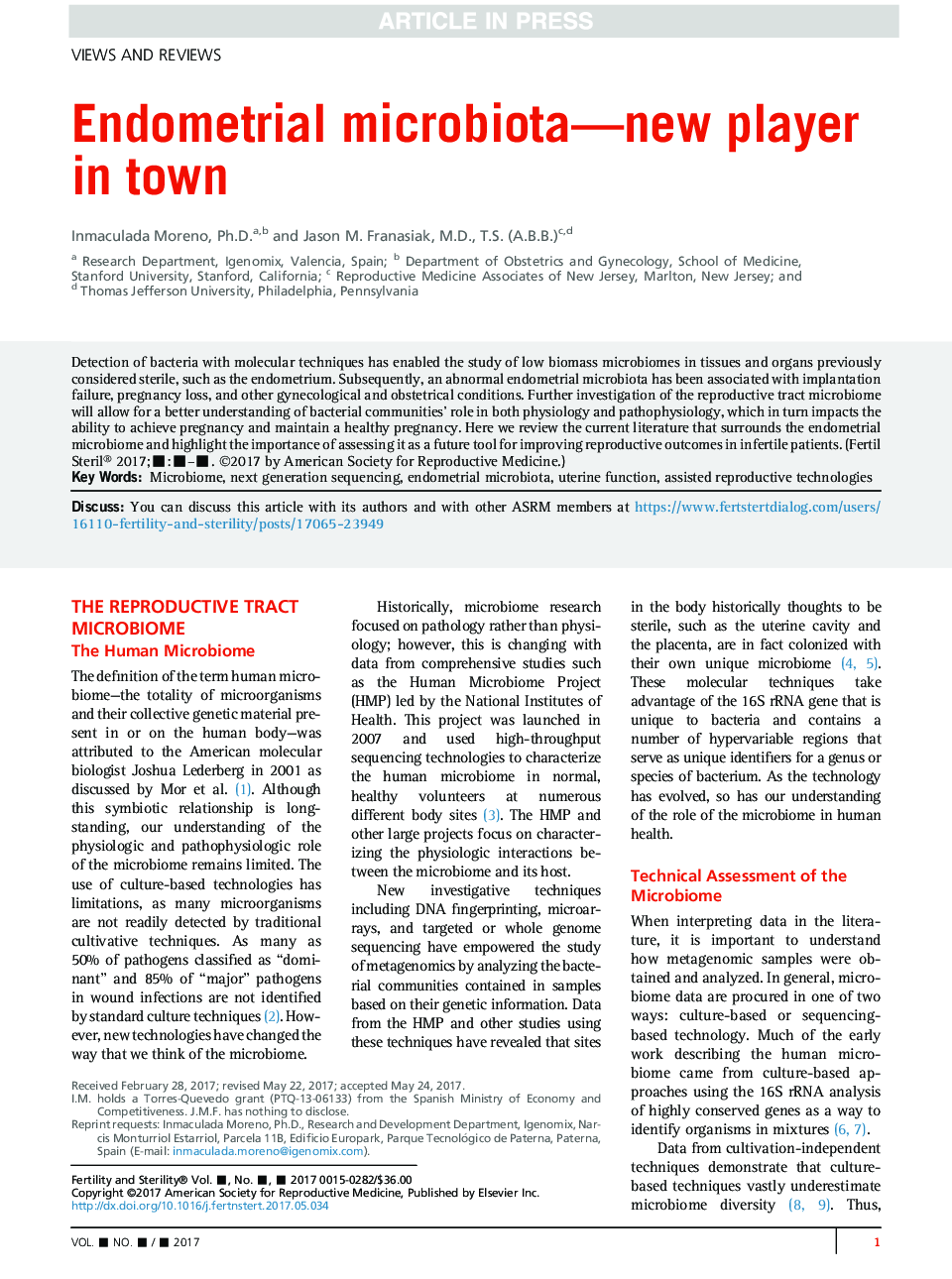| Article ID | Journal | Published Year | Pages | File Type |
|---|---|---|---|---|
| 5689982 | Fertility and Sterility | 2017 | 8 Pages |
Abstract
Detection of bacteria with molecular techniques has enabled the study of low biomass microbiomes in tissues and organs previously considered sterile, such as the endometrium. Subsequently, an abnormal endometrial microbiota has been associated with implantation failure, pregnancy loss, and other gynecological and obstetrical conditions. Further investigation of the reproductive tract microbiome will allow for a better understanding of bacterial communities' role in both physiology and pathophysiology, which in turn impacts the ability to achieve pregnancy and maintain a healthy pregnancy. Here we review the current literature that surrounds the endometrial microbiome and highlight the importance of assessing it as a future tool for improving reproductive outcomes in infertile patients.
Related Topics
Health Sciences
Medicine and Dentistry
Obstetrics, Gynecology and Women's Health
Authors
Inmaculada Ph.D., Jason M. M.D., T.S. (A.B.B.),
